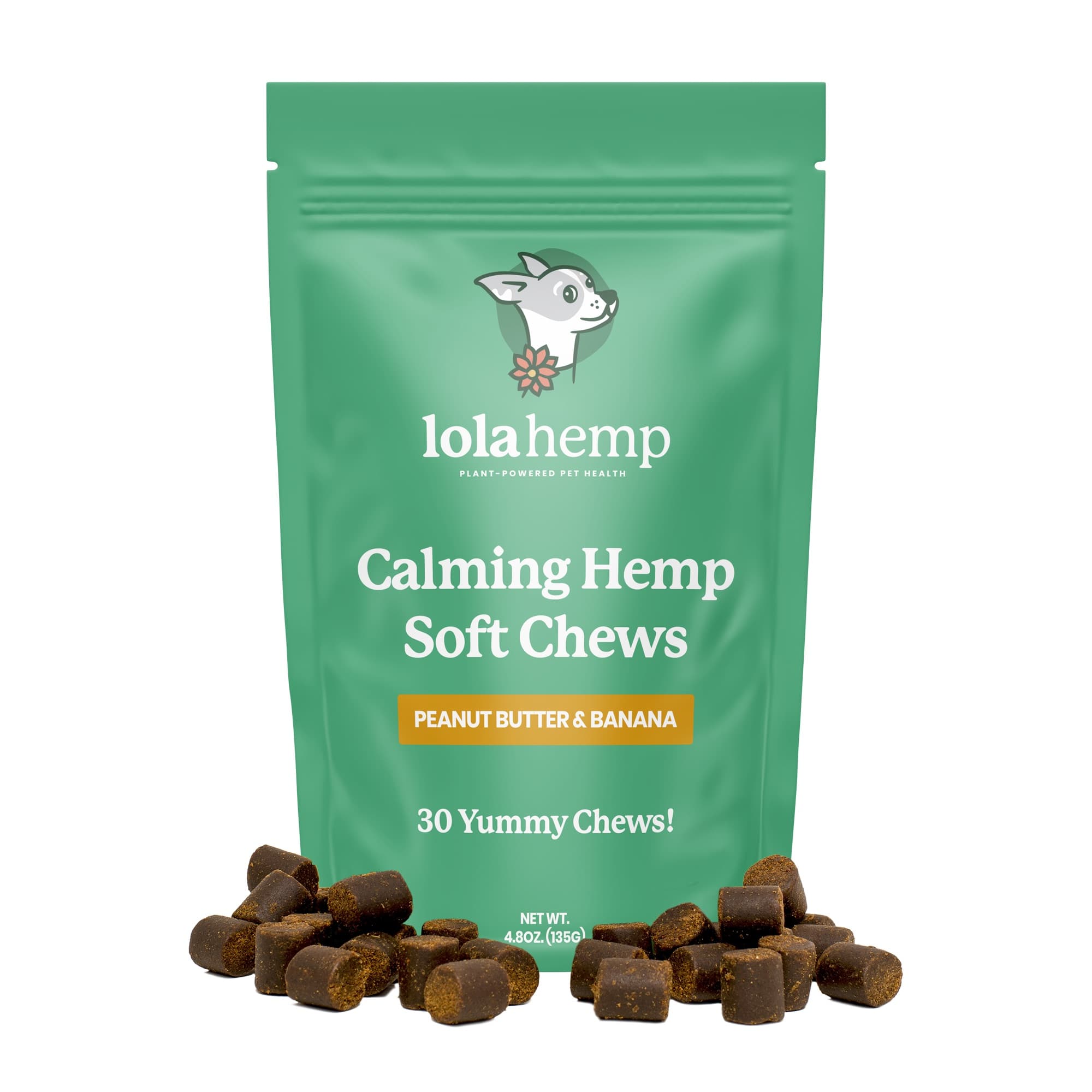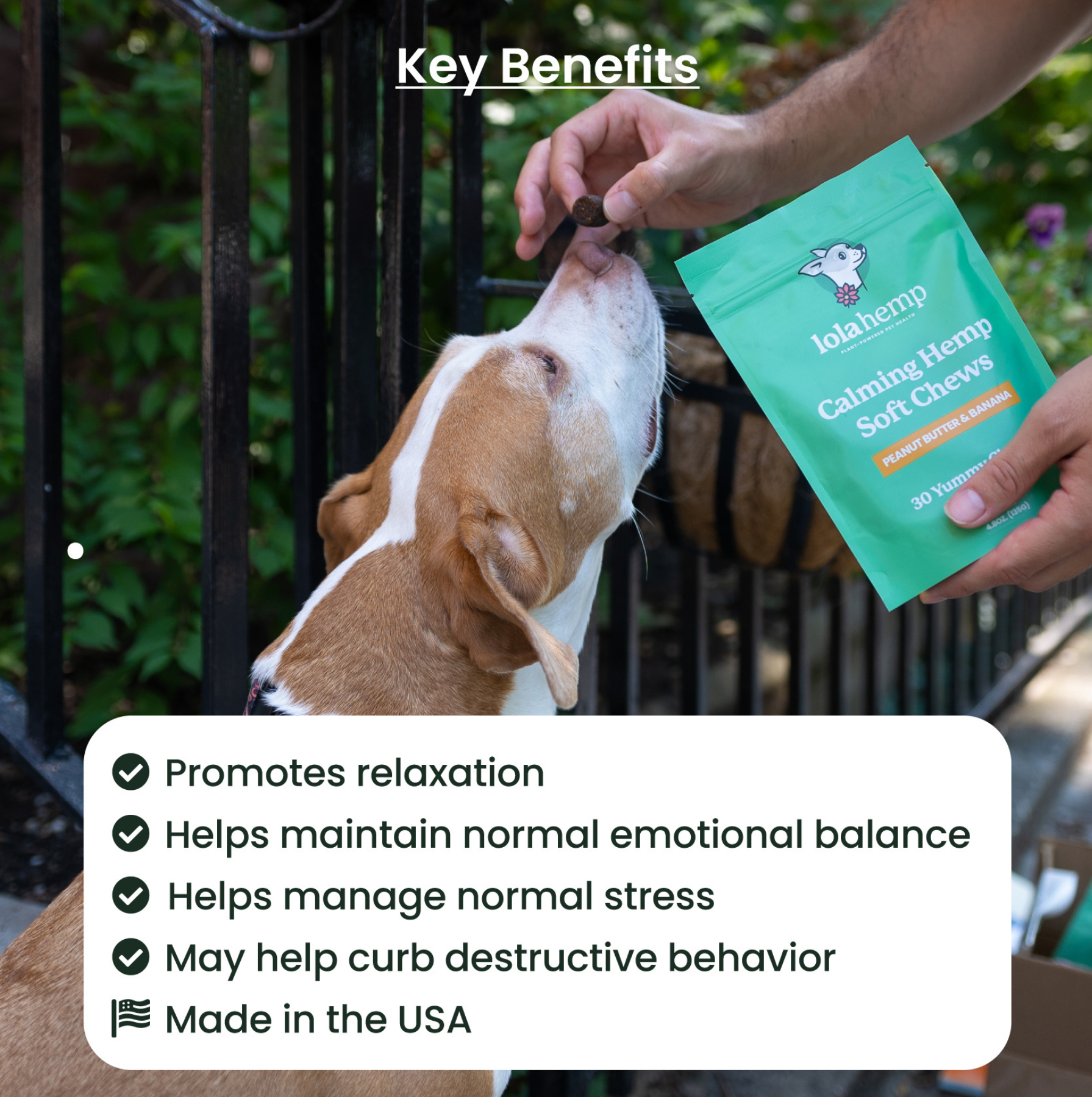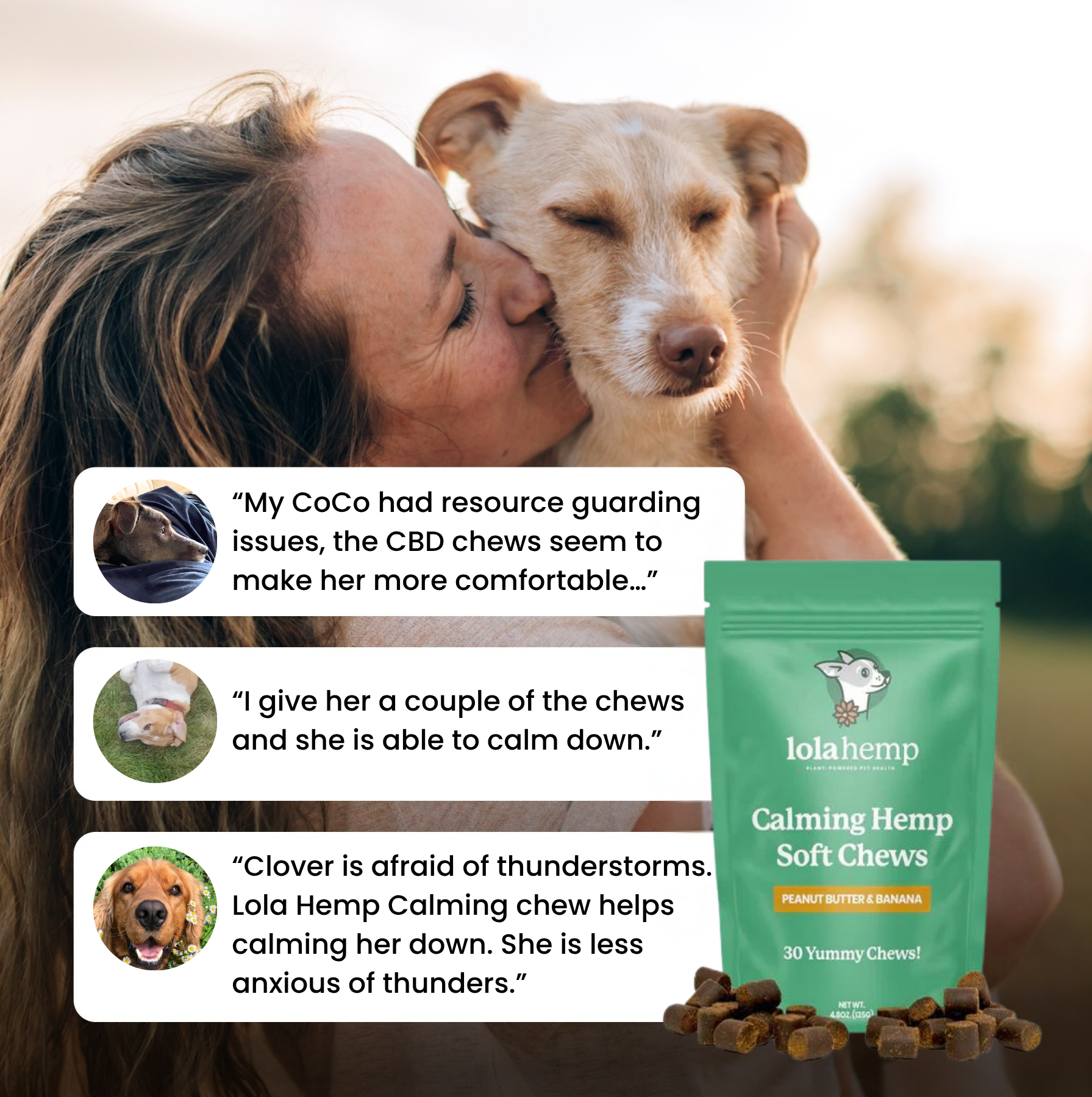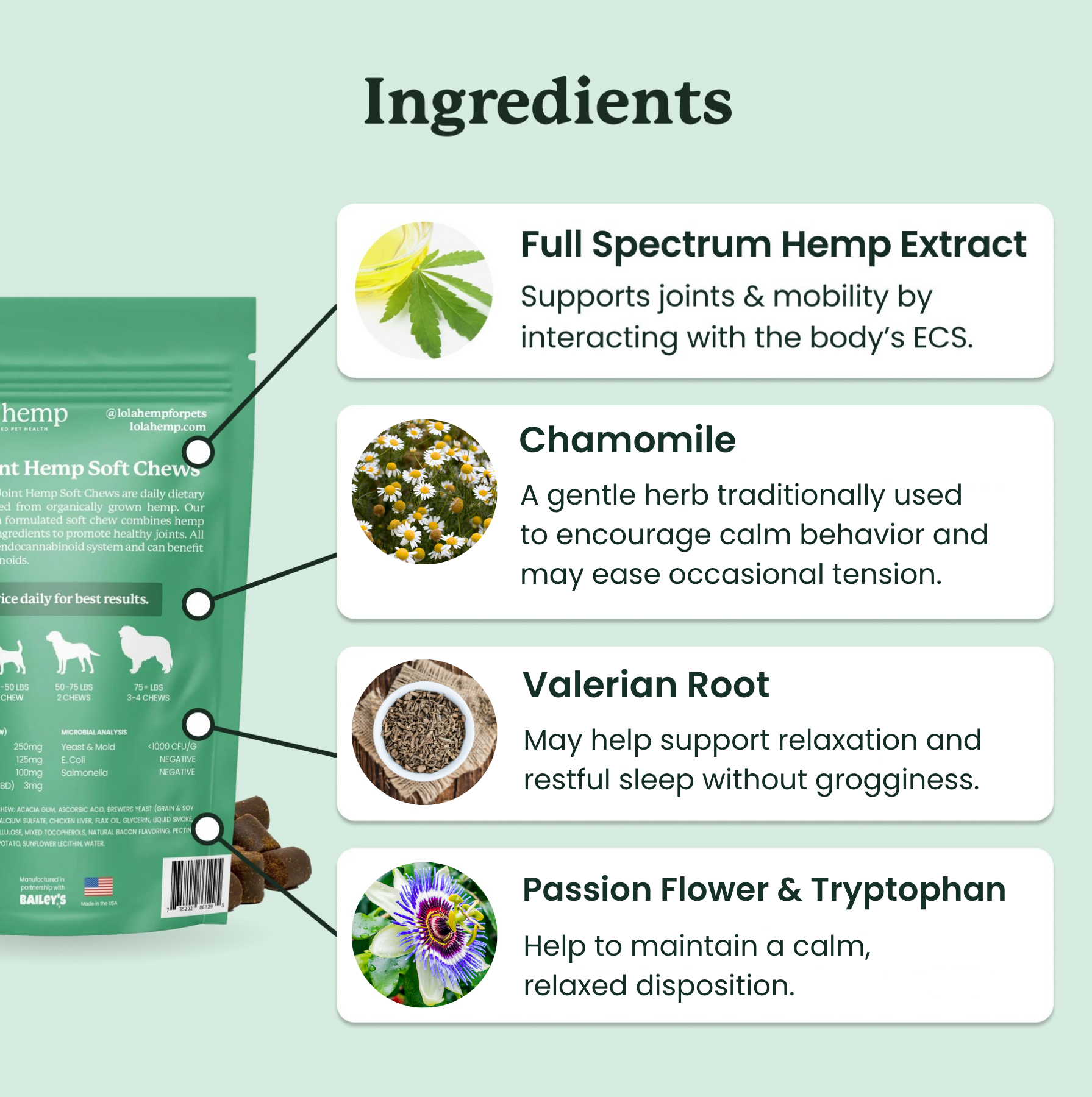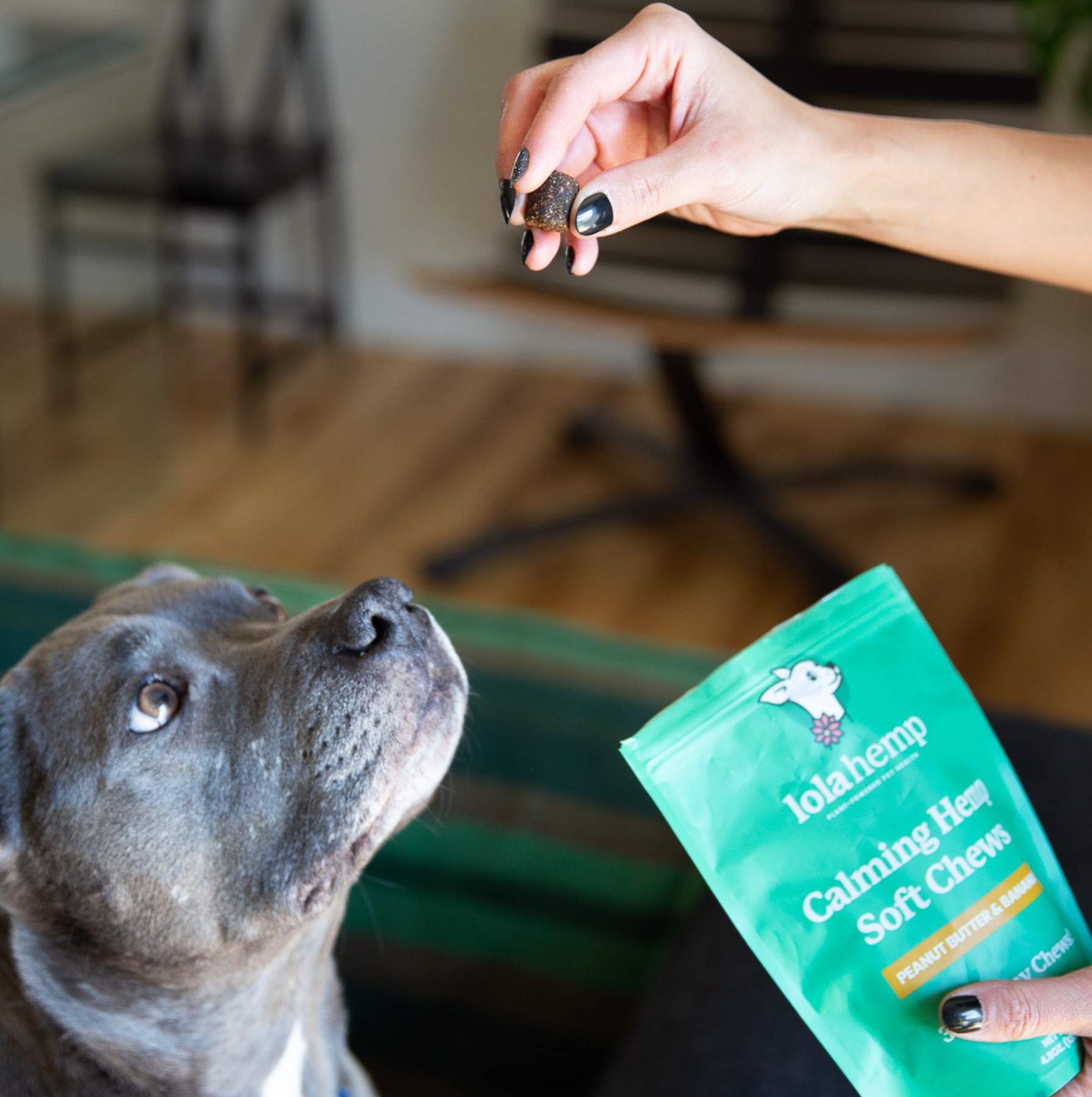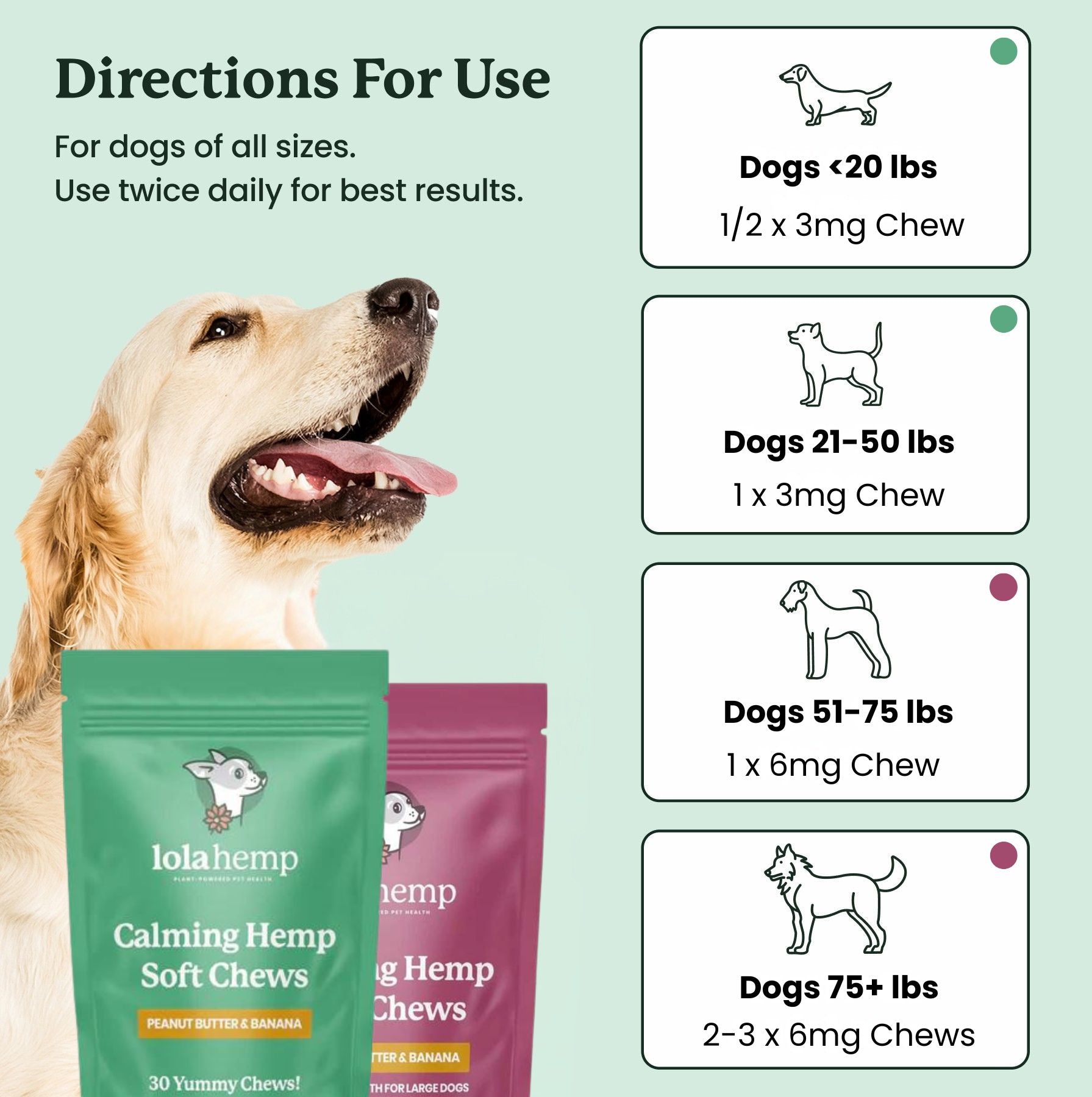The last thing a dog owner wants is to see their dog in distress or pain. Dogs can get nervous when visiting the Vet, unfamiliar places, meeting new people, or hearing sudden loud noises from thunderstorms and fireworks.
Two options your veterinarian might discuss with you are CBD and Gabapentin. We hope this article helps you in your journey to understand more about Gabapentin, CBD products made for dogs, and whether or not they're compatible options for your pup.
We always want to ensure our best buddies are in their best health, so we'll look at CBD and gabapentin as relief options in this article.

- Can CBD and Gabapentin for Dogs Be Used Together?
- What is CBD?
- What are the Potential Benefits of CBD?
- The Side Effects of Using CBD
- CBD Oil Dosage
- Choosing the Right CBD Product
- What is Gabapentin?
- How Does Gabapentin for Dogs Work?
- Final Thoughts
- Frequently Asked Questions About Using Gabapentin and CBD for Dogs
- Is it safe to give my dog CBD and gabapentin together?
- Can CBD replace gabapentin for managing my dog’s discomfort?
- What signs should I watch for if my dog is taking both CBD and gabapentin?
- How do I know the right CBD dosage if my dog is on gabapentin?
- Are there dogs who should not take CBD with gabapentin?
Can CBD and Gabapentin for Dogs Be Used Together?
Using CBD and Gabapentin together may enhance sedation effects, so it is important to consult your veterinarian before combining these treatments to ensure safe use.
If your pet is already taking gabapentin for chronic pain issues like arthritis, or if they're taking any other pain medication, it's not recommended that you start them on CBD. Supplements for chronic pain, pain medication, or any other clinical method used to treat pain should not be supplemented with other options without talking with your veterinarian.
Gabapentin for dogs should be used under veterinary guidance, and introducing an option to attempt to treat your dog's chronic pain without talking with your veterinarian could lead to adverse health effects.
Can My Dog Overdose on CBD and Gabapentin?
It is crucial to administer all medications under strict veterinary guidance. Avoid increasing doses without professional advice, and seek help if you notice unusual symptoms.
Mixing CBD and gabapentin for dogs could lead to an increased risk of side effects like drowsiness or lack of coordination. Veterinarians are the best people to treat pain in dogs, and they will know which pain medications are best for your pet.

What is CBD?
With the growing interest in CBD, this cannabinoid is becoming a natural, household option to support your pet's mental and emotional wellness.
Veterinarians are also exploring combining CBD and Gabapentin, a medication commonly prescribed by veterinarians to treat pain and anxiety.
The Basics of CBD
CBD stands for cannabidiol, a naturally occurring active ingredient in cannabis, specifically the hemp plant. The other one is tetrahydrocannabinol (THC), which contains psychoactive properties and is not present in levels above 0.3% in hemp-derived products.
CBD does not significantly impact consciousness but may cause sleepiness. It interacts with the body’s endocannabinoid system (ECS), a cell-signaling system that helps regulate various body functions.
Understanding The Endocannabinoid System
The endocannabinoid system (ECS) is composed of endocannabinoids, receptors, and enzymes.
The ECS helps regulate:
Stress
Pain response
Growth and development
The function of reproductive organs
Brain development
Appetite
Metabolism
Sleep
Mood
There are two main ECS receptors that THC and CBD influence: CB1 and CB2.
What are the Potential Benefits of CBD?
Addressing Discomfort: Some studies suggest that CBD might support pain management in dogs with osteoarthritis. Individual responses vary, and more research is needed.
Emotional Wellbeing: CBD may support emotional distress reduction. Consult your veterinarian to see if it could be beneficial.
Certain Episodes: CBD might support dogs with fits or shakes, but results vary and more studies are needed.
Cardiovascular Health: The omega 3s and omega 6 fatty acids in CBD carrier oils could support cardiovascular health.
The Side Effects of Using CBD
Possible side effects may include:
Drowsiness
Dry Mouth
Lowered Blood Pressure
Lethargy
Vomiting & Diarrhea
CBD Oil Dosage
CBD can be administered in various forms including cream, treats, and oil. The appropriate dose depends on weight and health needs. Always consult your veterinarian.
Choosing the Right CBD Product
Organic Sources
Third-Party Testing
Clear Dosing Guidelines
Excellent, Extensive Reviews

What is Gabapentin?
Gabapentin is approved by the FDA to treat chronic neuropathic pain and seizures in humans. It is commonly prescribed “off-label” in veterinary medicine to manage pain, seizures, and anxiety.
How Does Gabapentin for Dogs Work?
Gabapentin may reduce calcium flow to nerve cells, which may help manage pain and control seizures.
Uses of Gabapentin for Dogs
Preventing Seizures
Controlling Pain
Easing Anxiety
Side Effects of Using Gabapentin
Drowsiness
Vomiting, Constipation & Diarrhea
Poor Balance
Gabapentin Dosage for Dogs
Dosage is based on weight and condition. Always follow your veterinarian’s recommendations.

Final Thoughts
Dog owners deeply care about their pets and want to ensure their well-being. Both CBD and Gabapentin have potential uses, but their safety and effectiveness can vary. Always consult with your veterinarian.
Frequently Asked Questions About Using Gabapentin and CBD for Dogs
Is it safe to give my dog CBD and gabapentin together?
These products may increase sedation when used together, so only a veterinarian can determine if the combination is appropriate for your dog.
Can CBD replace gabapentin for managing my dog’s discomfort?
CBD should not replace prescribed medications. Any adjustments to your dog’s treatment plan should be made with your veterinarian.
What signs should I watch for if my dog is taking both CBD and gabapentin?
Drowsiness, imbalance, or digestive upset may occur. Contact your veterinarian if symptoms become concerning.
How do I know the right CBD dosage if my dog is on gabapentin?
Only your veterinarian can determine the correct CBD dosage when medications are being combined.
Are there dogs who should not take CBD with gabapentin?
Dogs with underlying conditions or those on multiple medications may be more sensitive. Veterinary guidance is essential before introducing CBD.

